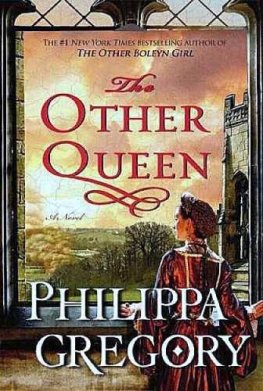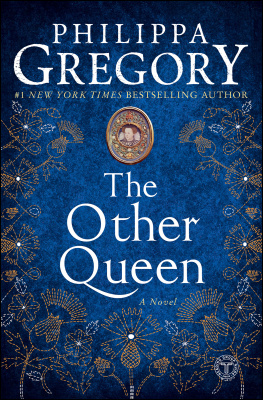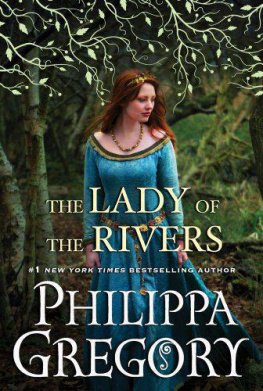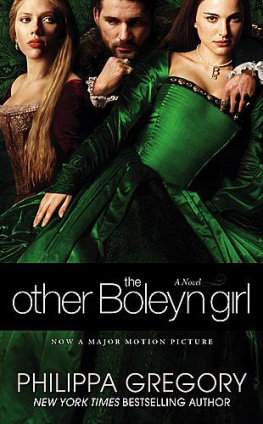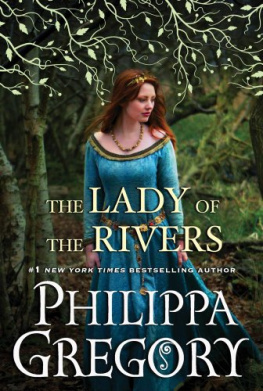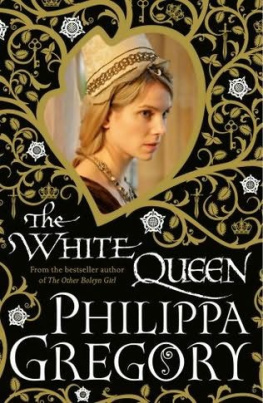
Historical Novels by Philippa Gregory
The Cousins War
The White Queen
The Red Queen
The Lady of the Rivers
The Tudor Court
The Constant Princess
The Other Boleyn Girl
The Boleyn Inheritance
The Queens Fool
The Virgins Lover
The Other Queen
The Wideacre Trilogy
The Wise Woman
Fallen Skies
A Respectable Trade
Earthly Joys
Virgin Earth
Books by David Baldwin
Elizabeth Woodville: Mother of the Princes in the Tower
The Kingmakers Sisters: Six Powerful Women in the Wars of the Roses
The Lost Prince: The Survival of Richard of York
Stoke Field: The Last Battle of the Wars of the Roses
Robin Hood: The English Outlaw Unmasked
Books by Michael Jones
The Kings Mother: Lady Margaret Beaufort, Countess of Richmond and Derby
Bosworth 1485: The Psychology of a Battle
Agincourt 1415
Total War: From Stalingrad to Berlin
Leningrad: State of Siege
The Retreat: Hitlers First Defeat
Stalingrad: How the Red Army Triumphed

First published in Great Britain by Simon & Schuster UK Ltd, 2011
A CBS COMPANY
Copyright Philippa Gregory, David Baldwin and Michael Jones, 2011
This book is copyright under the Berne Convention.
No reproduction without permission.
All rights reserved.
The right of Philippa Gregory, David Baldwin and Michael Jones to be identified as the authors of this work has been asserted by them in accordance with sections 77 and 78 of the Copyright, Designs and Patents Act, 1988.
Simon & Schuster UK Ltd
1st Floor
222 Grays Inn Road
London WCIX 8HB
www.simonandschuster.co.uk
Simon & Schuster Australia, Sydney
Simon & Schuster India, New Delhi
Every reasonable effort has been made to contact copyright holders of material reproduced in this book. If any have inadvertently been overlooked, the publishers would be glad to hear from them and make good in future editions any errors or omissions brought to their attention.
A CIP catalogue record for this book is available from the British Library.
ISBN HB 978-0-85720-177-5
ISBN TPB 978-0-85720-178-2
eBook ISBN 978-0-85720-179-9
Typeset in Plantin by M Rules
Printed in the UK by CPI Mackays, Chatham, ME5 8TD




INTRODUCTION
Philippa Gregory
This is a new sort of book for me; a collection, written by myself and two other historians, of three short lives of three extraordinary women: Jacquetta Duchess of Bedford, Margaret Beaufort, and Elizabeth Woodville. This book came about because so many readers ask me for the true stories on which I base my novels, and there is nothing readily available for these three: The Lady of the Rivers (2011), The Red Queen (2010), and The White Queen (2009). The existing biographies of Margaret Beaufort and Elizabeth Woodville were out of print when I started my research, and so I worked from rare second-hand copies. I invited the authors, David Baldwin and Michael Jones, to each write a short essay on their subject for us to jointly publish here.
There was no biography at all of Jacquetta, and I realised that if I wanted to find out about her life I would have to do my own original research from the early documents, and trace the brief references to her that occur throughout other histories. As a woman who was present at many great events, and a kinswoman of both royal houses of England, she is often mentioned in the histories of her time; but her story has never before been told. To trace her life I had to read accounts of the lives of her contemporaries and of her times, forever looking out for a reference to her, her husbands or her family. This way I have managed to trace her from her childhood in English-held France, to her family home of Luxembourg, through her first marriage into the royal House of Lancaster, into her second marriage, when she lived at the royal courts of Lancaster and York and to her country house in England. If she was present at a great event she was sometimes mentioned by name; once or twice she was one of the primary actors. Most of the time the record does not speak of her and I can only speculate as to what she was doing.
In the course of writing the biography of a woman who was present at the events but all-but missing from the record, a woman who is hidden from history, I had to think about what it means to write the different forms of history-based writing. In one week I wrote some of this non-fiction biography, some pages of the novel, and a synopsis for a drama screenplay that is based on the novels. All of these are grounded on the few known facts of Jacquettas life, and all of them (including the history) are works of speculation, imagination and creativity.
WHY WRITE A HISTORY OF THESE WOMEN?
Why should one bother to write the history of a woman such as Jacquetta Duchess of Bedford? Or of Elizabeth Woodville? Or of Margaret Beaufort? Does Jacquettas absence from the records of her own time indicate that she is no great loss to the history books of today? Of course not. Jacquetta is absent from the records of her time because the letters, chronicles and journals written then mostly told of public events, and as a woman, excluded from formal political power and military service, Jacquetta was not a primary actor. Occasionally, she was at the forefront, and then we find her recorded, for instance accused of witchcraft, or kidnapped to Calais; sometimes she was an actor representing the queen or king, sometimes she was in a conspiracy and her work is still secret. So she does have a presence in the historical records if they are carefully examined.
But the interests of medieval chroniclers were not the same as ours. Historians today are interested in women, in the dispossessed, in the marginal, in the powerless. In particular we are interested in womens history women as a group, and individual women. Historians would now agree that an account of a society which does not look at the lives of half of the population is only half an account. Jacquettas life, as a prominent medieval woman, can tell us much about the queens court, about elite life, about marriage, loyalty, social mobility, sex, childbirth and survival. She is interesting as a representative of her time and class as well as her gender. The medieval historians do not record such things; we have to look for them through the records, reading between the lines.
The histories of the other two women of this book are little better known; but Elizabeth Woodvilles life story has been told largely in terms of her second husband Edward IV, and the tragedy of her son Edward V. She is often slandered as a social climber, as an abuser of power and as morally corrupt on a biased reading of very little evidence. Margaret Beaufort, on the other hand, has been made into a stereotype of virtue. There is very little written about her, and even less that sounds realistic. We can read about her piety and self-sacrifice, almost nothing about her ambition, conspiracy and passion. Much of the work she undertook for her son was done in secret, the collaborators sworn to silence and any documents destroyed. It is almost impossible to reconstruct the history of her lifes work: it was a secret she kept to the grave.
Next page



